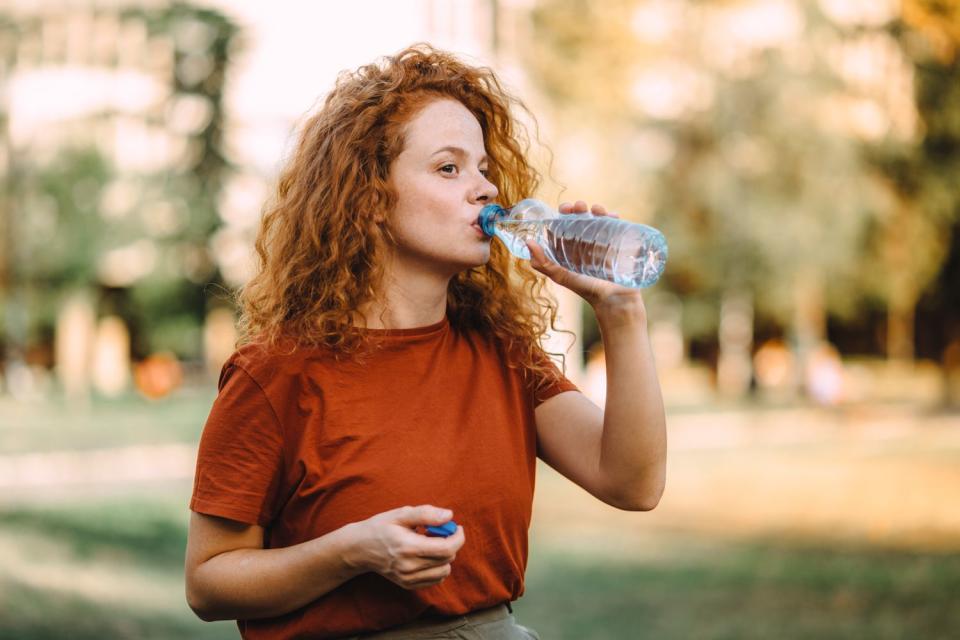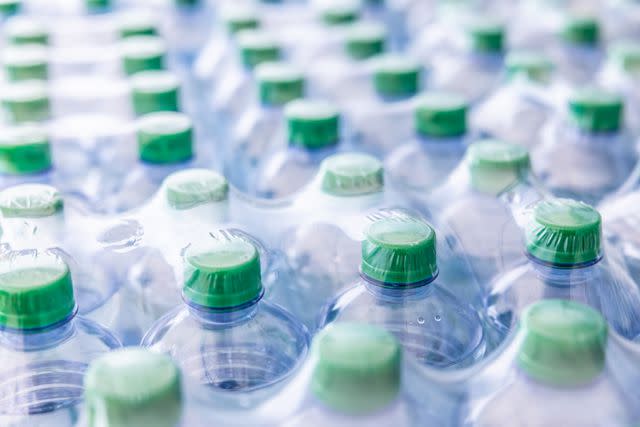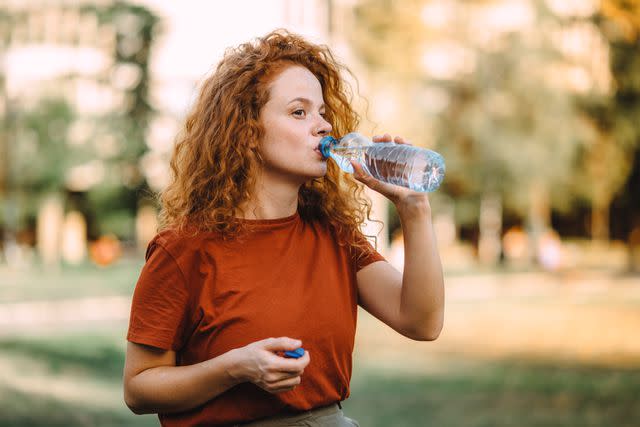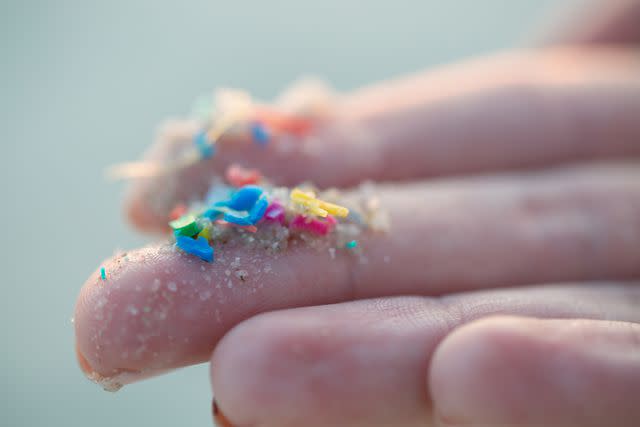Scientists Say They'll Cut Back on Bottled Water After Learning 1 Liter Contains a Quarter of a Million Pieces of Plastic
A recent study analyzed three brands of bottled water and found a liter contained an average of 240,000 pieces of plastic

Getty
Nanoplastics discovered in bottled water.The average liter of bottled water contains a quarter of a million pieces of microscopically small plastic — and the researchers who made this discovery have said that although it might not be dangerous, it’s made them cut back on how much bottled water they drink.
With laser-powered microscopes, researchers analyzed samples from three brands of bottled water and discovered that a liter contained 110,000 to 400,000 pieces of plastic per liter.
That’s an average of about 240,000 miniscule particles of plastic, according to their findings, which were published in the Proceedings of the National Academy of Sciences.
While the brands analyzed weren’t identified, lead study author Naixin Qian told NBC News that all three were common brands purchased at a major national retailer.
The study authors said that 90% of the plastic pieces were not microplastics, but nanoplastics, which are even smaller than microplastics, and “believed to be more toxic since their smaller size renders them much more amenable, compared to microplastics, to enter the human body,” the study said.

Getty
A liter of bottled water contains an average of 240,000 pieces of plastic.As the National Library of Medicine explains, “Microplastics (MPs) are plastic particles with a diameter less than 5 mm, while nanoplastics (NPs) range in diameter from 1 to 100 or 1000 nm [nanometer].”
To put that size in perspective, there are 10 million nanometers in a centimeter.
The researchers believed the plastic came from the bottle itself, as well as from the filtration system used by the water companies — which is intended to remove pollutants.
Related: 26 Million People Across the U.S. Have Harmful 'Forever Chemicals' in Their Drinking Water

Getty
Study co-author Phoebe Stapleton, a toxicologist, told NBC News that the potential health impact is “currently under review. We don’t know if it’s dangerous or how dangerous.”
However, one study published in the National Library of Medicine said “the results of cellular and animal experiments have shown that microplastics can affect various systems in the human body, including the digestive, respiratory, endocrine, reproductive, and immune systems.”
That study also noted that “microplastics can cause chemical toxicity, which involves the absorption and accumulation of environmental toxins such as heavy metals and polycyclic aromatic hydrocarbons.”
Their findings have made the researchers say they’re cutting back on bottled water: Stapleton told NBC News that she’s relying on filtered tap water now, and her colleague Wei Min, a chemist, said he’s reduced his bottled water consumption.

Getty
The health impact of microplastics is still under review.But as study co-author, chemist Beizhan Yan, shared, “there’s just no win” as water filtration systems can introduce microplastics into the water supply.
Last August, microplastics were discovered in human heart tissue. And it was discovered that humans are breathing in the equivalent of a credit card-sized amount of microplastics per week, according to a June 2023 study that was reported in U.S. News and World Report.
“We know these microplastics are all over the place," Albert Rizzo, the American Lung Association’s chief medical office, told National Geographic. "We don’t know whether the presence in the body leads to a problem. Duration is very important. How long you are exposed matters.”
"In the meantime," he asked, "can we make plastics safer?”
For more People news, make sure to sign up for our newsletter!
Read the original article on People.

